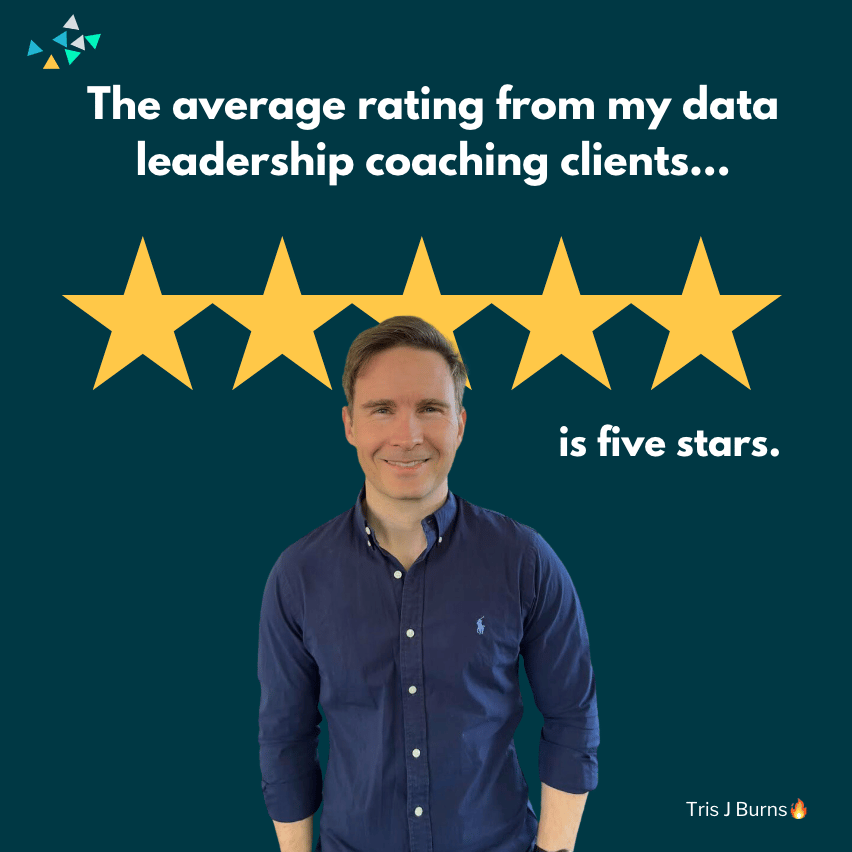
Hey there data gang,
I want to start today’s post by welcoming the whopping 154 of you who subscribed in May. It’s an absolute pleasure to have you here, as it is with everyone who receives ✨Strategies For Effective Data Leadership ✨
We often hear that the most important skills in data are comms skills and business knowledge. But what do we actually mean when we talk about ‘business knowledge’?
What are the crucial business concepts every data leader should know? Let’s take a look shall we?

👔 It’s Business Time!
Understanding key business concepts is essential for data leaders to bridge the gap between data initiatives and business outcomes as well as to ensure that data work aligns effectively with organisational strategic pillars.
In today’s post we’re going to explore some of the common business concepts that data leaders ought to know, but often don’t.
I’m highlighting them here so if there are any you’re not entirely familiar with, you can go a research them!
🏢 Key Concepts and Why They’re Essential
🔹 Value Proposition: The unique value that a product or service provides to customers.
Why it’s essential: Aligning data initiatives with the unique value offered to customers ensures that data efforts are directly contributing to what makes the business competitive and appealing to its market and customers.
🔹 Revenue Models: Basically, all the ways in which the business makes it’s moolah. Might be through Freemium models, subscriptions, licensing etc.
Sometimes a companies key revenue channel is not the one it’s best known for. Apple is an example of this. Apple is known for iPhone and other consumer electronics but makes most of it’s cash through its services: App Store, iCloud, Apple Music etc.
Why it’s essential: Understanding how the business actually generates its income allows data leaders to prioritise projects that enhance these revenue streams, ensuring the all important ROI from data initiatives.
🔹 Operational Efficiency: What are the processes in the organisation for driving efficiencies? For example, Toyota’s Kaizen strategy which revolutionised the way in which cars are more efficiently made throughout the world.
Why it’s essential: Understanding how this is approached in the business will help data leaders to better prioritise and focus on opportunities for further optimisation and efficiency.
🔹 Risk Management: Pretty straightforward, recognizing and mitigating business risks!
Why it’s essential: Recognising and mitigating risks is crucial for ensuring that data initiatives do not expose the business to undue risks and support broader risk management objectives.
🔹 Strategic Planning: The is pretty much the long-term goals of the business. Where it plans to play and how it plans to win!
Why it’s essential: Aligning data strategies with long-term business goals via a data strategy ensures that data projects contribute meaningfully to the company’s strategic direction and sustainable growth.
It’s also essential that data is involved in the strategic planning process itself. For that reason Data Leaders need to be heavily across strategy.
🔹 Financial Literacy: Being able to read and interpret financial statements. It’s important for leaders within an organisation to be able to understand the financial position of the business. These documents can be complex and unclear to the untrained eye.
Why it’s essential: Being able to interpret financial statements allows data leaders to quantify the impact of data projects and communicate effectively with financial stakeholders, securing necessary buy-in.
🔹 Change management: Knowing how to lead and manage through and drive change. This might include digital transformations, team or corporate restructuring or even just things like training and new tool onboarding.
Why it’s essential: Proficiency in change management is vital for guiding teams through transformations driven by data initiatives, ensuring smooth adoption and minimal disruption. In particular, striving for an improved data culture and data driven decision making is often a top priority for data leaders.
👋 Hi, I’m Tristan - Thanks for being here!
There’s quite a lot of new faces around here so I thought I’d introduce myself. My name is Tristan and I am a coach and advisor to data leaders all over the world.
I’ve made it my mission to help them to supercharge their careers and grow into influential and unstoppable data leaders.
So far, every single one of them has given me a 5-star rating.

If you’d like to grab a free intro call with me to discuss how I can help you go for it! You can book time directly with me here: Chat with Tristan
I’m currently taking clients for June and there are limited spaces available so now is the time to take action!
Speak soon!
